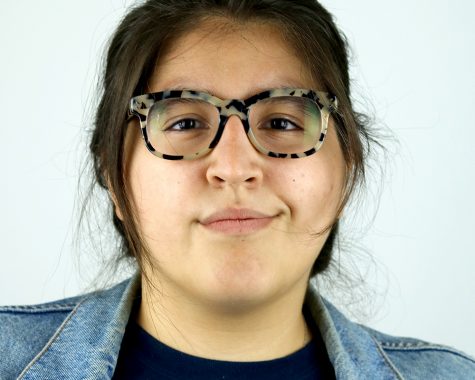Warbler yearbook celebrates 100th anniversary
April 7, 2019
“Till the iris bloom again.”
John David Reed, a former adviser of student publications who taught at Eastern for 32 years, described himself as the “oldest living” advisor remaining, said this expression during the 100th celebration of The Warbler yearbook Saturday night.
The expression, Reed said, was invented by Franklin Andrews, the first professional adviser of The Warbler.
When Robert Buzzard was president of Eastern he liked iris plants, and so south of Old Main back where the old lake used to be (yes, there was a lake on campus) he had beds of irises planted all over.
So Andrews coined those five words in a column in The Daily Eastern News, referring to those iris flowers that Buzzard liked so much and of course referring to people coming back together to meet once again, Reed said.
“That’s what these are all about,” Reed said, knocking on his favorite yearbook, the one from 1973 that looked just like a suitcase, “(it’s about) us coming back together many times, frequently. So I leave you with that thought. Till the iris bloom again.”
Reed said this as he wrapped up an evening marked by a sentimental journey through the years. Years that were filled with laughs, tears, happiness, stress and lots of beer.
And through those years each yearbook had its own theme.
The 1973 yearbook, for example, had little handles inside the cover that folded out to represent the handles of a suitcase because back then Eastern was known as the “suitcase college” since everyone went home for the weekend, Reed said.
And although there was not a theme for the evening, there was one that accompanied the night and made itself known: Remembering.
Current and former editors and staff members of Warbler’s past and their friends and family remembered what has changed and what has stayed the same, remembered why the book was named The Warbler (it was because at one time there were so many Warblers on campus), remembered snippets of their lives and they remembered why the yearbook exists in the first place.
Scott Fishel, the editor of the 1982 yearbook, was asked to speak about his time as editor and named the many things that have changed.
Things like typewriters, dark rooms for camera film, camera film, proportion wheels and pica poles and telephones that “were just telephones” and stayed in one spot, he said.
But he said some of the things that have never changed and never will, aside from procrastination and more beer, is the role of The Warbler staff and why the yearbook is necessary.
He said the people who put the yearbook together are campus leaders. They help preserve a “little piece of what it was like” from any year and he said people have need for something tangible, for a little piece of history that they lived through.
Carole Hodorowicz, the current editor of the yearbook, said the stress, laughs, tears, late nights and making deadlines were all worth it in the end.
“I wish I could go back and do it all again,” she said. “I can’t believe this chapter of my life and of Eastern’s history is already over.”
Hodorowicz said The Warbler documents history, and they get students involved to create something together, whether it is as tangible as the actual published yearbook or just the memory.
Reed said the first editor of The Warbler was a guy named Gage Carman and a student committee said “we oughta have a yearbook on this campus.”
So in 1919 that day came and The Warbler was born, and from then on it helped students remember four years of their lives and kept those memories of Eastern thriving till the iris bloom again.
Analicia Haynes can be reached at 581-2812 or [email protected].















































